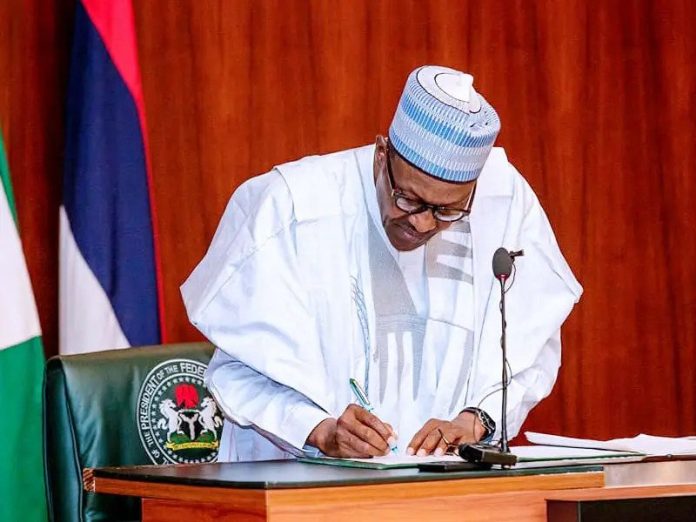President Muhammadu Buhari has signed 19 bills in accordance with Section 58 (4) of the Federal Republic of Nigeria Constitution.
According to Senator Babajide Omoworare, Senior Special Assistant to the President on National Assembly Matters (Senate), 16 of these bills are Constitutional Alterations to the Federal Republic of Nigeria’s 1999 Constitution (as amended).
The assented Constitutional Alteration Bills include, among other things, ensuring the financial independence of state houses of assembly and state judiciary; regulating the first session and inauguration of members-elect of the national and state houses of assembly and for related matters; and requiring the president and governors to submit the names of persons nominated as ministers or commissioners for confirmation by the Senate or the House of Representatives within sixty days of taking the oath of office.
Others include allowing states to generate, transmit, and distribute electricity in areas covered by the national grid; excluding the period of intervening events in the computation of time for determining pre-election matters, petitions, and so on; regulating the first session and inauguration of members-elect of national and state assemblies; changing prisons to correctional service and re-designating correctional service in the concurrent list; and moving.
Senator Omoworare stated that the President also signed the Nigerian Institute of Leather and Science Technology Act, the Nigerian Institute of International Relations Act, and the Federal Medical Centres (Amendment) Acts.












